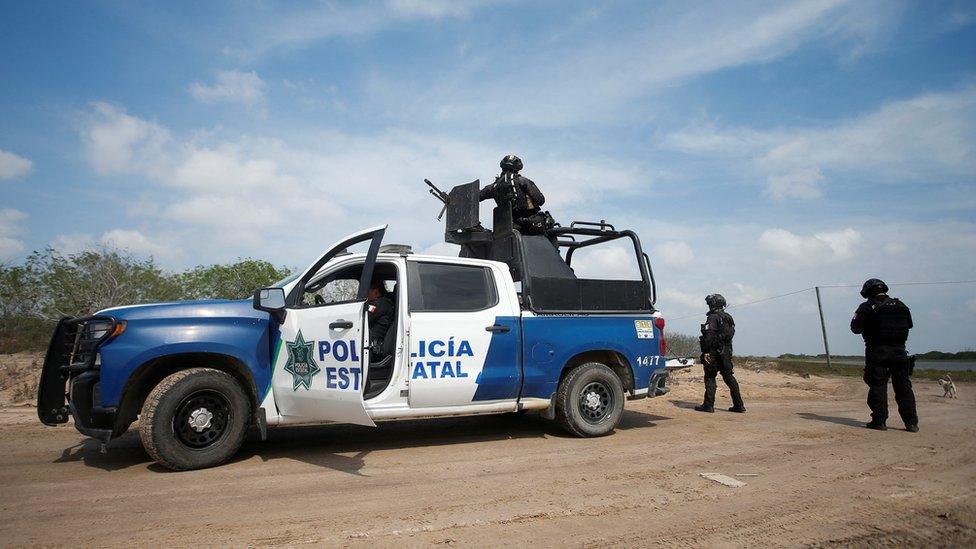Mexico kidnapping: Why a million Americans a year risk Mexico medical tourism
- Published
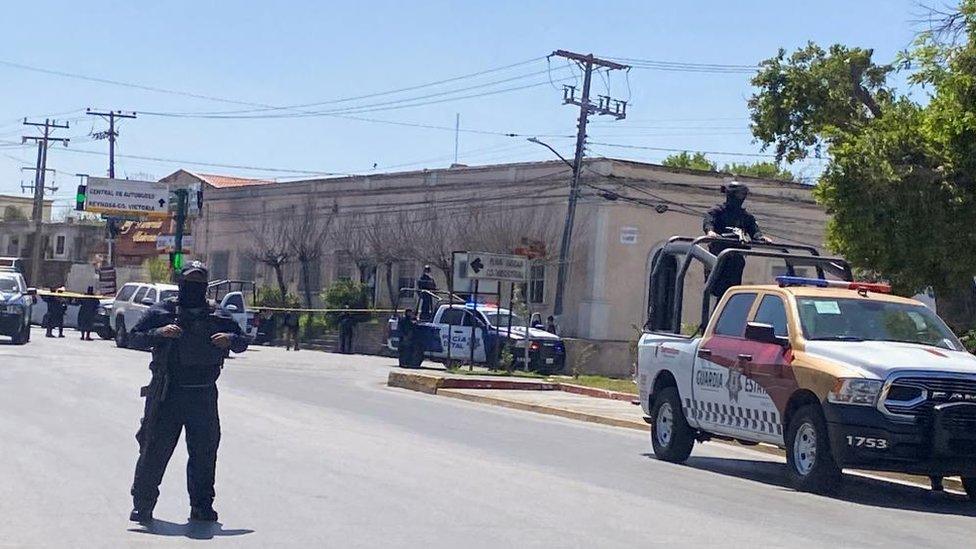
State police officers stand guard near a crime scene in Matamoros, Mexico
Americans often travel to Mexico for low-cost medical services. But bargain shopping for healthcare can be risky.
Over the weekend, four Americans were kidnapped in Matamoros, Tamaulipas, after travelling by car to the Mexican border town for cosmetic surgery, according to relatives. Two have been confirmed dead, and two survived the ordeal.
Border towns like Matamoros are among the most dangerous in Mexico. Drug cartels control large regions of the state of Tamaulipas, and often hold more power than local law enforcement.
But these towns are some of the top medical tourism destinations for tens of thousands of Americans, some who can't afford healthcare in the US.
Medical shoppers, especially those familiar with the region, have learned to take precautions, like registering their vehicle in Mexico, which allows them to change the licence plate to a Mexican one after entering the country by car so they will be less of a target, and avoiding wandering around these towns on foot.
Price and proximity make Mexico a top medical tourism destination for Americans.
"It's economics," said Néstor Rodriguez, an immigration studies expert and professor of sociology at the University of Texas at Austin. "Medicines and services are cheaper in Mexico, especially dental procedures. You can get your teeth cleaned or an implant for a fraction of the cost of what you get in the US."
The quality of care usually matches what a patient can find in the US, he added, though the Centers for Disease Control and Prevention have warned about infections from surgical procedures in Mexico.
Video shows the moment four Americans were kidnapped in Mexico
According to the Mexican Council for the Medical Tourism Industry, nearly one million Americans travel to Mexico for medical care each year.
Mexican-born US citizen Taide Ramirez, 58, has been crossing the border for more than a decade to get cheaper treatment for her hypothyroidism, a two-and-half hour drive from her home in San Antonio to the Eagle Pass/Piedras Negras border crossing.
While she does have employer-sponsored health insurance, she says her co-pays are more expensive than what she is charged in Mexico.
She told the BBC she usually dedicates an entire day to the journey and has never encountered a problem on her route south.
Still, safety is top of mind. She doesn't cross at night and she heads straight to her appointments before promptly returning to the US.
"I never go alone. I always take my sister with me or my son," she added.
For many border cities, it's among the fastest-growing industries.
In Nuevo Laredo, Tamaulipas, a few hours northwest of Matamoros, two main corridors running south from the region's main international land crossing are lined with dozens of dentistry offices and hotels for travellers seeking medical care.
In Tijuana, Baja California, just a three-minute drive south of the border from San Diego, a 33-storey medical facility opened in November 2022.
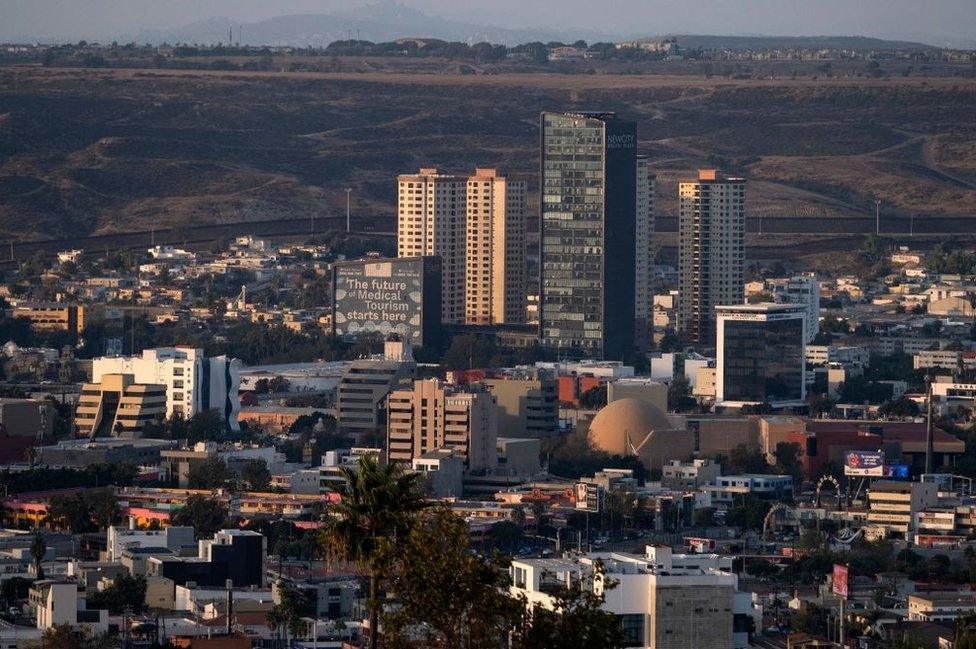
The New City Medical Plaza complex stands near the Mexico-US border fence in Tijuana, Baja California
Launched as "the best medical tourism facility in the world," the NewCity Medical Plaza offers care in more than 30 medical specialties, including cosmetic surgery, as well as a hotel and shopping centre.
The latest advisory from the US Department of State warns against travel to Tamaulipas due to crime and kidnapping, citing that passenger buses and private vehicles can often be a target. Other Mexico border states also have travel warnings.
While some border towns have become especially hostile for immigrants and asylum seekers trying to enter the US, violence against Americans in these regions is still rare. The kidnapping of the four Americans and subsequent killing of two is "out of the norm," Mr Rodriguez said.
But this is a reminder that the border is not really safe, Mr Rodriguez said. "I stopped going."
Related topics
- Published7 March 2023
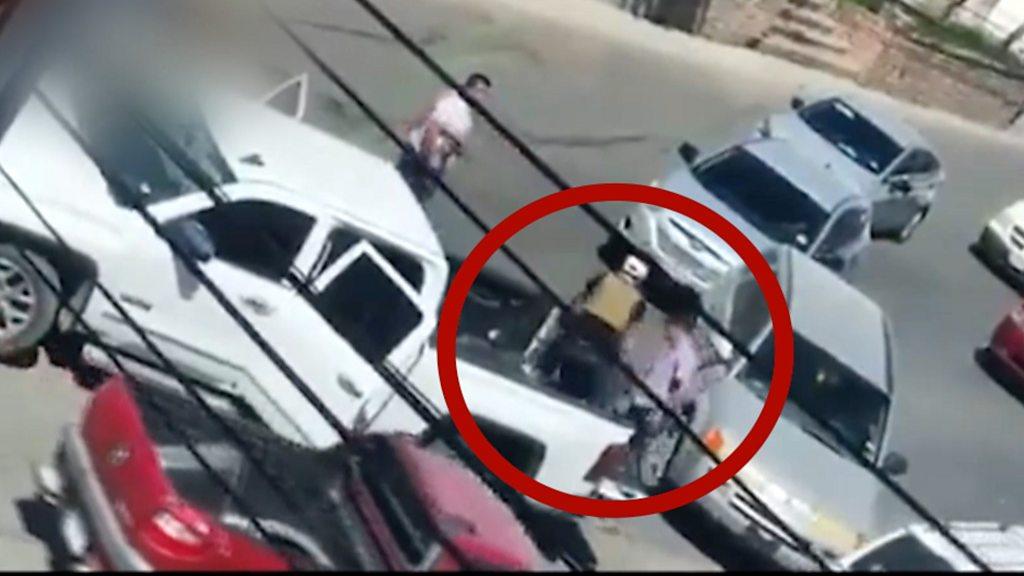
- Published7 March 2023
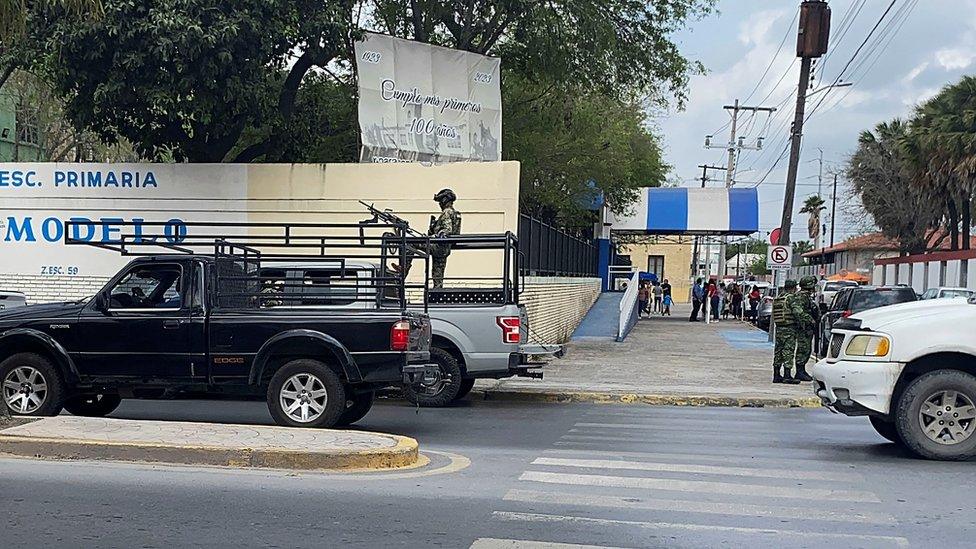
- Published8 March 2023
